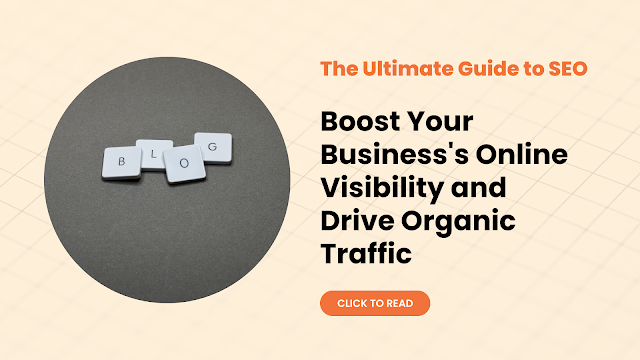Introduction
Welcome to the Ultimate Guide to SEO - your comprehensive resource for understanding and implementing effective search engine optimization strategies. In today's digital age, having a strong online presence is crucial for the success of any business. With the majority of consumers using search engines to find products, services, and information, it's essential to have a solid understanding of SEO and how it can benefit your business.
Click here for SE Ranking's Complete Toolkit
In this guide, we'll take you through every step of the SEO process, from the basics to advanced strategies. We'll break down complex concepts and define key terms in a clear and accessible manner, making it easy for anyone to understand. With insights from industry experts and real-life success stories, you'll gain the knowledge and tools to take your online presence to the next level.
So, whether you're new to SEO or looking to improve your existing strategy, this guide will equip you with everything you need to know to boost your business's online visibility and drive organic traffic. So let's dive in and discover the ins and outs of SEO.
Understanding SEO Basics
Search engine optimization, or SEO, is the practice of improving a website's visibility and ranking on search engine results pages. It involves various strategies and techniques to increase a website's organic traffic, or traffic from non-paid search results.
Search engines aim to provide users with relevant and quality content, making it crucial for businesses to understand and implement effective SEO strategies.
Keywords, content, and links are the three main components of SEO, with each playing a significant role in improving a website's ranking.
On-page SEO focuses on optimizing content and other elements on a website, while off-page SEO involves building links and promoting the website on other platforms.
By understanding these basics of SEO, businesses can lay a strong foundation for their online presence and work towards driving more organic traffic to their website.
The Importance of Quality Content in SEO
When it comes to SEO, content is king. High-quality, relevant content is essential in driving organic traffic to a website and improving its search engine rankings.
Search engines aim to provide the best and most relevant results to users' search queries. By creating valuable and informative content that meets the search intent of users, website owners can increase their chances of ranking higher in search engine results pages (SERPs).
Keywords play a crucial role in SEO, and using them strategically in your content can help improve its visibility. However, it's important to use them naturally and not overstuff them, as this can harm your ranking.
In addition to keywords, other factors that affect the quality of content include its length, format, and visual elements. Long-form content tends to perform better in search results, and incorporating visual elements, such as images and videos, can make your content more engaging and shareable, leading to more backlinks and better SEO results.
In conclusion, creating high-quality, relevant content is vital in any SEO strategy. Not only does it help improve search engine rankings, but it also provides value to users and enhances their overall experience on your website.
Optimizing Your Website
One crucial aspect of SEO is optimizing your website. This involves making technical adjustments to improve your website's search engine rankings and user experience. Here are some key points to keep in mind when optimizing your website:
Site structure:
Ensure that your website has a logical and easy-to-navigate structure. This allows search engines to crawl and index your pages more efficiently.
Page speed:
A slow-loading website can negatively impact user experience and search engine rankings. Use tools like Google PageSpeed Insights to identify and fix any speed issues.
Mobile optimization:
With the majority of internet users accessing websites through mobile devices, it's essential to have a mobile-friendly website. This not only improves user experience but also helps with search engine rankings.
Duplicate content:
Having duplicate content on your website can harm your SEO efforts. Make sure to regularly check and remove any duplicate content to avoid penalties from search engines.
By optimizing your website, you not only improve your chances of ranking higher on search engine results pages but also enhance the overall user experience on your website.
Building and Earning Links for SEO
Links are an essential element of SEO, as they help improve a website's authority and credibility in the eyes of search engines. In this section, we will discuss the importance of building and earning links for your SEO strategy.
- Define the role of backlinks in improving search engine rankings and driving organic traffic.
- Differentiate between white hat and black hat link building techniques.
- Emphasize the importance of earning natural and high-quality links through creating valuable content and building relationships.
- Mention the use of social media and other websites in promoting content and earning backlinks.
- Provide tips on how to create an effective link building strategy, such as reaching out to relevant websites and guest blogging.
- Discuss the use of tools to monitor and analyze backlinks, as well as identify and remove any low-quality or spammy links.
- Encourage businesses to continuously work on building and earning links, as it is an ongoing process that can greatly benefit their SEO efforts.
Targeting Specific Markets
Local SEO is a crucial aspect of SEO for businesses looking to target specific geographical areas. By optimizing your website for local search, you can attract potential customers who are actively searching for products or services in your area.
Understanding Local SEO
Local SEO requires targeting specific keywords that include the name of your city, town, or region. This helps search engines understand the local relevance of your website and display it in relevant local search results.
Optimizing for Local Search
Utilize local keywords in your website's content, meta tags, and title tags.
Claim and optimize your Google My Business listing, including accurate NAP information and photos.
Get listed on online directories and review sites, such as Yelp and TripAdvisor.
Encourage customers to leave reviews and ratings, as they can greatly impact local search rankings.
Consistency is key when it comes to local SEO. Make sure your business's name, address, and phone number (NAP) are consistent across all online platforms to avoid confusion and improve your local search visibility.
Staying Competitive in Local Search
It's important to regularly monitor and update your local SEO efforts to stay competitive in local search results. Keep an eye on your rankings and make necessary adjustments to your strategy, such as targeting new keywords or optimizing for new locations.
By targeting specific markets through local SEO, businesses can attract highly relevant traffic and increase their chances of converting leads into customers.
Keeping Up with Search Engine Algorithms
Search engine algorithms are constantly evolving and updating, making it crucial for businesses to stay informed and adapt their SEO strategies accordingly. These algorithms are the set of rules and calculations used by search engines to determine the relevance and ranking of web pages on search results pages. As these algorithms change, so do the strategies and techniques used to improve SEO.
To stay on top of algorithm updates, businesses can use tools and resources such as Google Search Console, which provides insights and alerts about website performance. It is also important to regularly read industry news and follow SEO experts to stay informed about changes and trends. When an algorithm update occurs, it is important to analyze its impact on the website's search engine visibility and make necessary adjustments.
In order to maintain a successful SEO strategy, businesses should also continuously monitor and analyze performance using tools such as Google Analytics. By keeping up with search engine algorithms and making necessary changes, businesses can ensure their website remains visible and competitive in search engine results pages.
Conclusion
In conclusion, SEO is a crucial aspect of driving organic traffic to your business's website. By understanding the basics of SEO, creating quality content, optimizing your website, and keeping up with algorithm changes, you can improve your search engine rankings and gain more online visibility. Remember to use relevant keywords, earn high-quality backlinks, and target specific markets through local SEO. Continuously working on your SEO efforts and staying informed about new trends and developments will lead to long-term success. With insights from industry experts and real-life success stories, this comprehensive guide equips you with the knowledge and tools to take your online presence to the next level. Don't underestimate the power of SEO in boosting your business's online success. Implement these strategies and see your website climb up the search engine rankings, resulting in more traffic and potential customers.



Time tracking software is invaluable for improving productivity and accountability. It provides insights into time usage, helping teams optimize workflows and achieve project goals efficiently. Great insights shared in this post!"
ReplyDelete